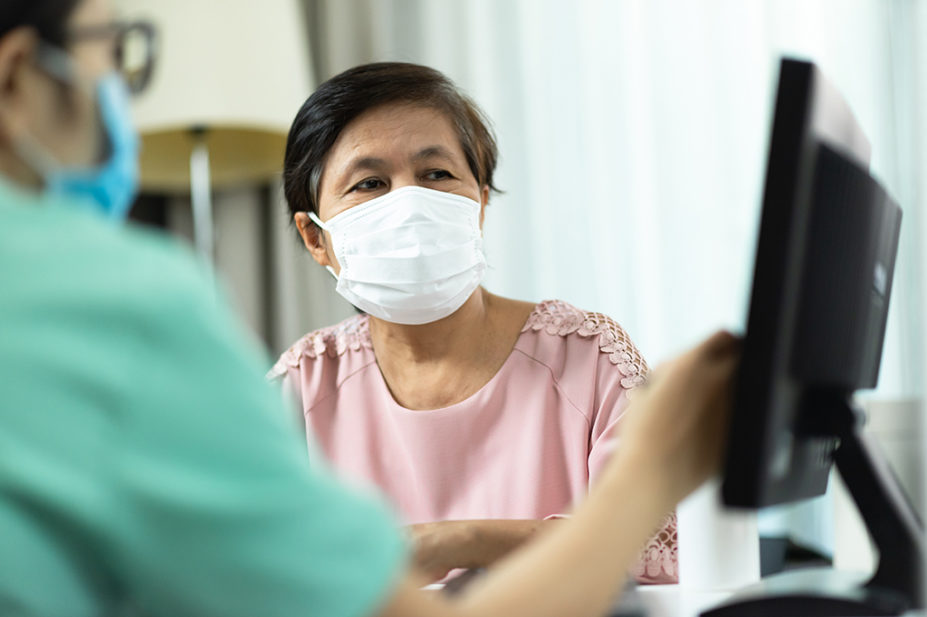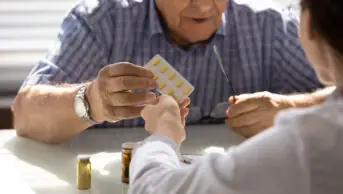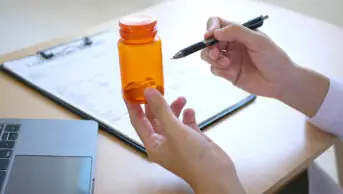
Shutterstock.com
The national clinical director for prescribing in England has said he will “have a look at” issues raised by pharmacists working in primary care, who say they are not being allowed enough time to carry out structured medication reviews (SMRs).
Tony Avery made the comments after his keynote address on the implementation of the national overprescribing review — which was published in September 2021 — at the Clinical Pharmacy Congress 2022, held in London.
Among the recommendations in the review was a suggestion to expand the use of SMRs in more patients, stating that they were an “ideal tool” to help people with problematic polypharmacy.
SMRs are meant to enable pharmacists to conduct a comprehensive review of all of a patient’s medicines, as well as detailed aspects of their health, and are targeted at patients most at risk of harm, such as those with severe frailty or who are taking potentially addictive medications, such as opioids.
However, following Avery’s talk, Paula Wilkinson, deputy alliance director and chief pharmacist at Mid Essex Clinical Commissioning Group, said she had heard from some of her primary care network (PCN) pharmacists that they were “struggling to convince” GPs to give them long enough appointments with patients to carry out the SMR.
“Pharmacists are not being allowed to book appointments for longer than ten minutes in order to carry out an SMR with a patient,” she said. “I wondered what messaging needs to go into general practice to recommend that these appointments need to be longer?”
Rosalyne Payne, lead clinical pharmacist for Coventry and Rugby GP Alliance, echoed these concerns, referring to the introduction of nine new indicators in April 2022 in the NHS’s Investment and Impact Fund (IIF) that offer PCNs around £16,400 each for delivering more SMRs to patients at risk of harm owing to medication errors.
“We do have a lack of understanding among our GPs about what an SMR is,” she said.
“With the IIF, that’s becoming more of a challenge — now that that’s in place, and the challenge is to achieve a threshold of SMRs, it’s how we get that awareness that we don’t compromise the quality in pursuing the quantity — how can we address that?”
Avery welcomed the feedback and said it was something he needed to “take away and have a look at”.
“I can see the issue and it happens so many times in healthcare where you put a metric in and you’ve got to do lots of SMRs, so you make them ten-minute SMRs and we can tick the box but it doesn’t make any difference because we know it’s only by spending the time that you can actually make a difference,” he said.
“I’m certainly working with the Royal College of GPs … I think one of the things we need to be doing centrally is to be looking at all the different messages that we need to be getting out to the different audiences.”
Avery added that there were “potential challenges and issues” with pharmacists working in general practice, relating to how they were paid; however, he emphasised that a proper SMR could not be completed in a ten-minute appointment.
“It’s not going to be a structured medication review in ten minutes, is it,” he said. “What practices need to do is recognise the type of review that might be needed for the type of patient.”
A study published earlier this month found that SMRs conducted by pharmacists working in general practice were being undermined by a lack of skills and support and were not putting patient outcomes first.
1 comment
You must be logged in to post a comment.



The length of consultation times is a question of parity more than anything else. 10 minutes is the minimum length supposed to be given to a GP appointment and in practice is the standard. In the face of unparalleled demand and a critical mass of undiagnosed morbidity I can't imagine GPs having a great deal of sympathy with requests for more time from other disciplines within their teams.
Resources, including time, are finite and will never be enough to deliver an equitable health service.